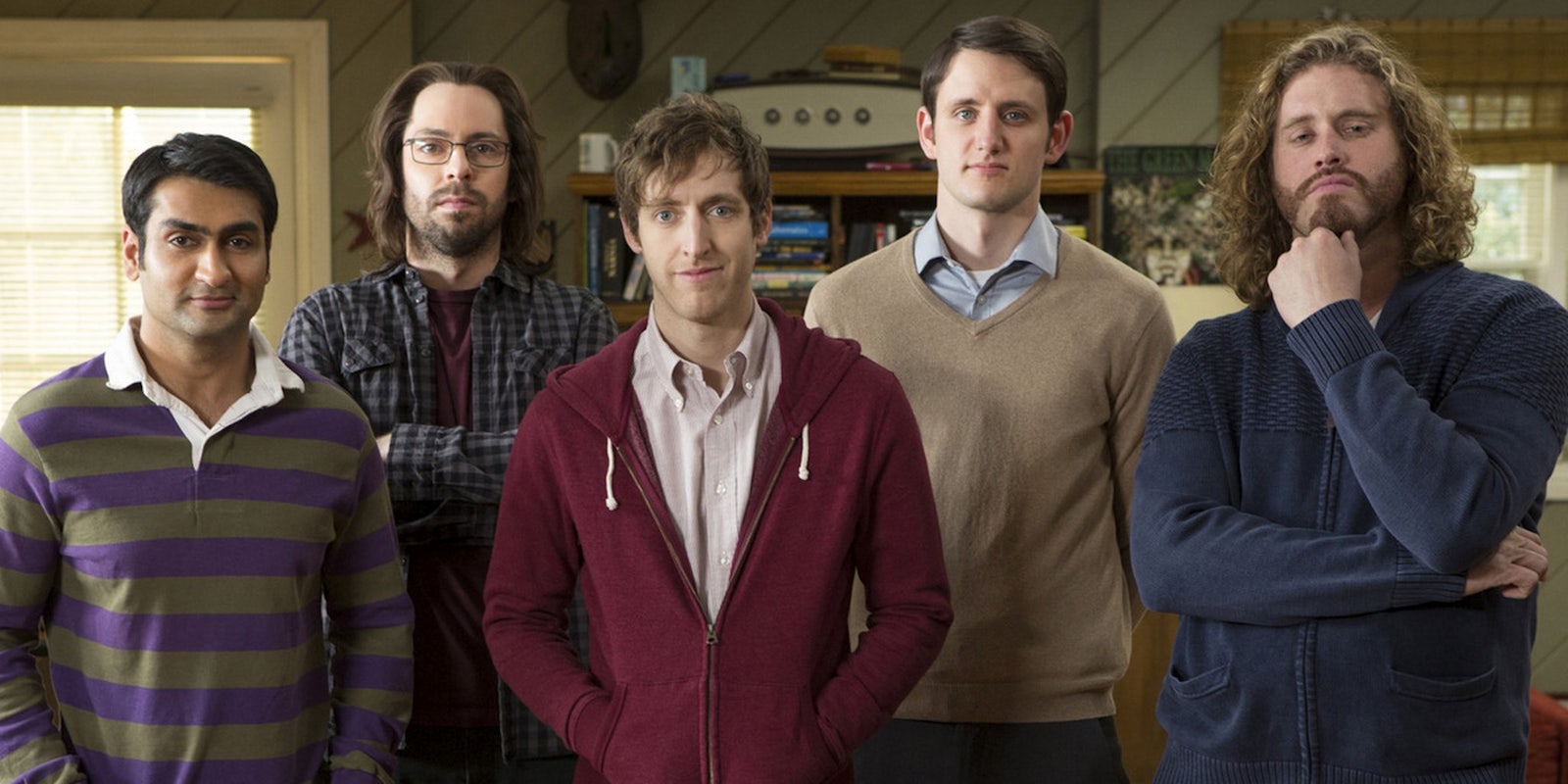BY S.E. SMITH
The morning after HBO’s Silicon Valley premiered, I happened to be visiting the DropBox offices in SOMA (mission creep from the Silicon Valley is drawing more and more of the tech industry north and into San Francisco proper). As I waited in the visitor’s lounge for my escort, lest I unwittingly stumble upon and then reveal key company secrets, I eavesdropped on the conversations around me. The room was filled entirely with men, and they were unilaterally making fun of the show for its inaccuracies.
Once I got into the offices themselves, though, and ran into some of the women working at DropBox, many of them pointed out that Silicon Valley cut close to the bone—that while it might not get all aspects of the tech industry and culture right, one thing it did target was sexism, with the minimal screen time for women in the pilot reflecting the similar lack of representation for women in tech itself. Some felt Silicon Valley was directly challenging the tech industry, one eyebrow up, waiting for a response.
But is it doing that successfully? That’s a question numerous critics are asking, because there’s a fine line between skewering sexism and commenting on a sexist culture and reinforcing it. This week, as we get ready for the Silicon Valley finale and peruse Google’s newly-released statistics highlighting the woeful lack of diversity at the Googleplex, it’s time to take a closer look at Silicon Valley, and its fictional counterpart.
Tech has a huge woman problem, and it always has: From the start, it was a men’s game—the contributions of women who shaped the early ages of computing, including my own grandmother (who was a key Lotus developer) have been nearly erased from history. Ada Lovelace, Grace Murray Hopper, and many more have faded into obscurity while their male counterparts are celebrated. The Bureau of Labor Statistics notes that only 20 percent of software developers are women; while almost 40 percent of web developers are women, that’s still not a balanced representation.
A “brogrammer” culture is still alive and well in Silicon Valley, especially at startups. The number of women in tech isn’t just small—the number of women in key positions is even smaller, and the amount of sexism in tech is formidable, as documented by organizations like Geek Feminism. Adria Richards was fired in 2013 for reporting sexual harassment, while Julie Ann Horvath was driven out of GitHub by sexism, and these are just two examples of the issues faced by women in tech on a daily basis.
Silicon Valley is sexist: Women know it, men working in solidarity with them know it, and the producers of Silicon Valley obviously know it.
This is a program with almost no women. The only woman actually playing a significant role is Monica (Amanda Crew), who acts as an executive assistant/den mother to the crew of men at Pied Piper, the startup the show revolves around. When women do flit back and forth across the screen, they’re in stereotyped, sexist, awful roles, and they have few to no lines—although at one point a sex worker does point out that an app in development is incredibly sexist (the app was based on the TitStare controversy). We don’t see women programmers, computer scientists, or other tech professionals.
Is Silicon Valley making some kind of elaborate meta-commentary on sexism in its real life counterpart? Is the absence of women, and the treatment of women as objects through the male gaze of the protagonists, all part of a complex scheme? Or is this show just your garden variety sexist television programming without any deeper agenda, thereby missing out on the chance to integrate some great social commentary into the narrative? This is, after all, Hollywood.
Notably, many male critics are staying away from the subject altogether, while many women feel that the sexism on Silicon Valley is just that: sexism. In order to punch up at the existing sexism in the real world, the show’s sexism would have to be depicted with more nuance—and there would have to be more women on the show for the men to play against. It’s hard to tackle a subject like sexism without engaging with the people who are affected by it, and right now, Silicon Valley is all about the men.
It’s a tactic that worked for the show, which was quickly renewed for a second season, but will the producers take the opportunity to bring on new characters, and will some of them be women? A rapidly expanding successful startup needs to hire staff quickly, and it needs to start converting contract personnel to full-timers. This is the chance to bring on women developers, to change Monica’s position within the company structure (as the right-hand woman, she could be someone with incredible power and control), and to actually directly challenge Silicon Valley’s sexist culture.
Playing with sexism in pop culture narratives can be funny, engaging, and also challenging for audiences, when it’s done right. Thus far, Silicon Valley appears to be falling short of the mark, as it appears to have missed that you can’t talk about sexism in a show without women. If this is intended as a commentary on the absence of women in tech, it’s both too subtle, and not quite accurate.
The problem isn’t simply the lack of representation in tech, but also the way women in tech are treated, and if Silicon Valley really wants to confront that, it needs some women. As it is now, the show is simply a reiteration of the same male-centric sexist environments some people claim it’s purporting to lampoon.
Photo via The Coolector


